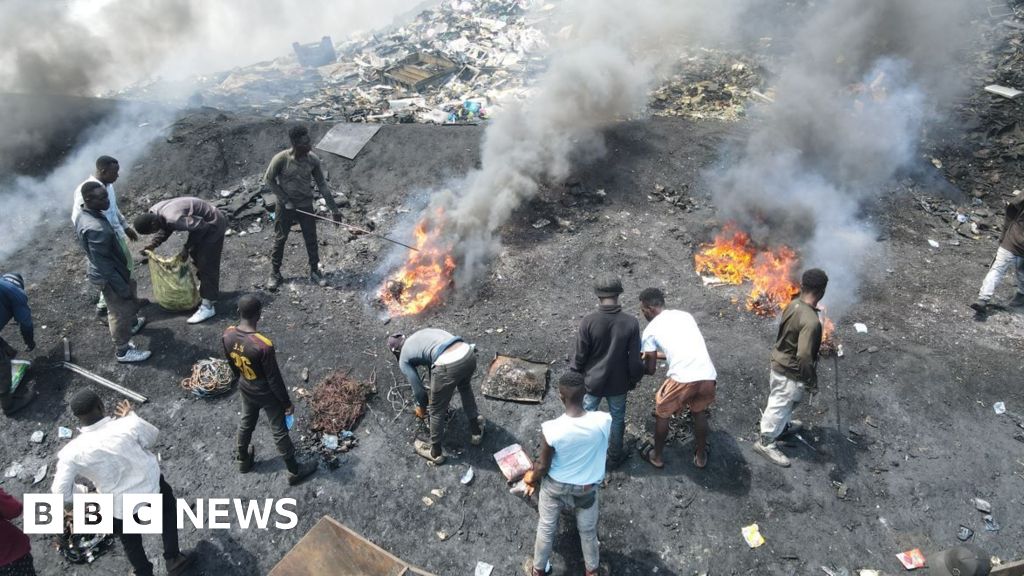The UN says only around 15% of the world’s e-waste is recycled, so unscrupulous companies are seeking to offload it elsewhere, often through middle men who then traffick the waste out of the country.
Such waste is difficult to recycle because of their complex composition including toxic chemicals, metals, plastics and elements that cannot be easily separated and recycled.
Even developed countries do not have adequate e-waste management infrastructure.
UN investigators say they are seeing a significant rise in the trafficking of e-waste from developed countries and rapidly emerging economies. E-waste is now the most frequently seized item, accounting for one in six of all types of waste seizures globally, the World Customs Organisation has found.
Officials at Italy’s Naples port showed the BBC World Service how traffickers mis-declared and hid e-waste, which they said made up around 30% of their seizures.
They showed a scan of a container bound for Africa, carrying a car. But when port officials opened the container, broken parts of vehicles and e-waste were stacked inside, with oil leaking from some of them.
“You don’t pack your personal goods like this, much of it is meant for dumping,” says Luigi Garruto, an investigator with the European Anti-Fraud Office (Olaf), who collaborates with port officials across Europe.

